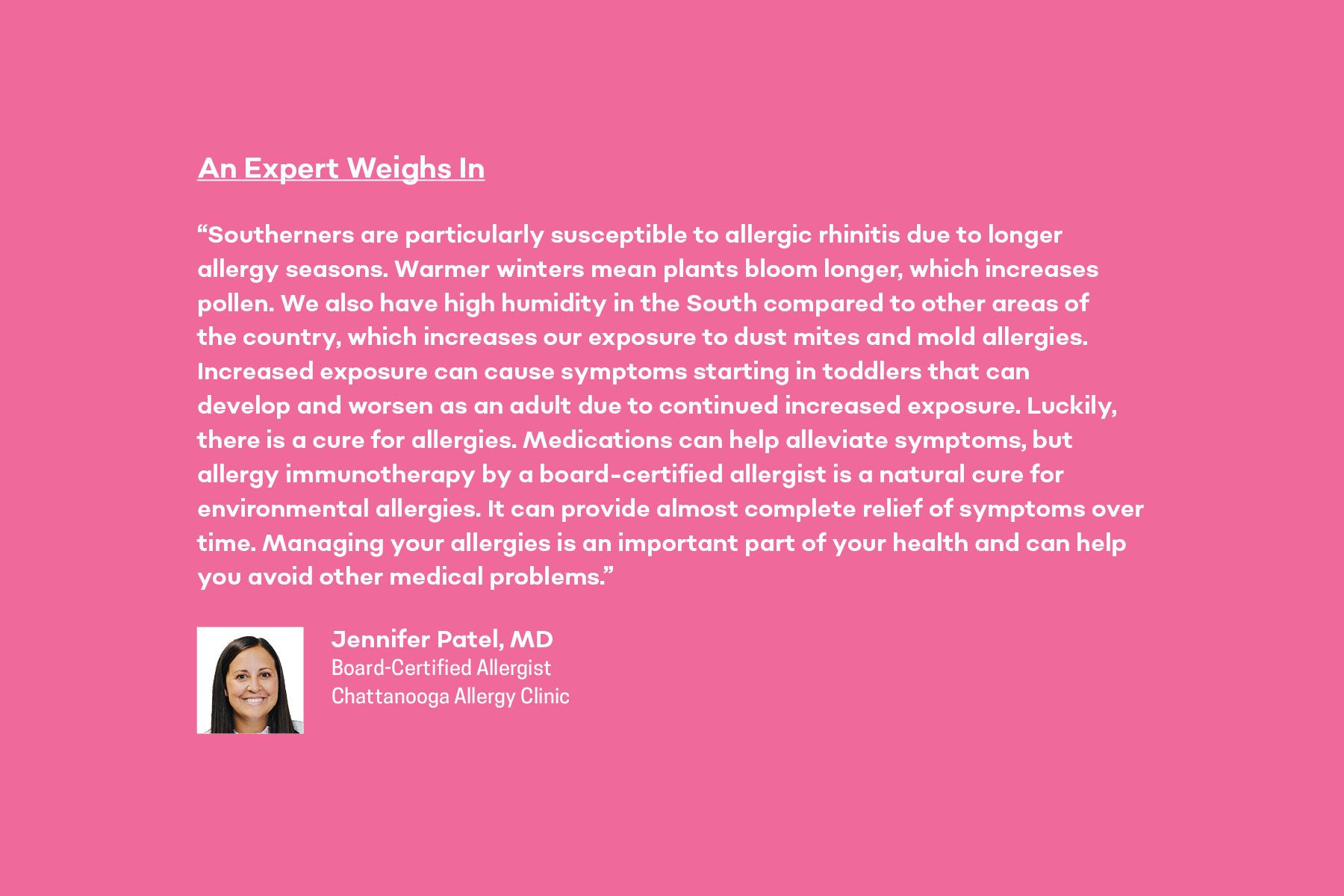Annual Women’s Health Section
It’s easy to let health fall by the wayside, especially when life gets busy. But it’s always important to listen to the little voice in your head that suspects something isn’t right. Here, we highlight common health concerns for women, what to look out for, and when to see your doctor. Don’t let your busy schedule stand in the way of getting the help you need!
By Lindsey June
Do you suffer from hay fever? An allergist can help with diagnosis and treatment options.
Understanding Allergic Rhinitis
An allergen is a substance that causes an allergic reaction. Some substances, like pollen, trigger the release of histamine in the nose and sinuses. This is called allergic rhinitis – or hay fever – and can lead to symptoms like itching, swelling, and fluid buildup in the sinuses. According to the American Academy of Allergy, Asthma & Immunology, nearly 8% of adults in the United States experience allergic rhinitis of some kind. People with asthma are at a higher risk.
Causes and Symptoms
The most common causes of allergic rhinitis are pollen, animal dander or saliva, dust mites, mold, and changes in hormones or the environment. Symptoms include sneezing, a stuffy or runny nose, itching, hives, nosebleeds, clear drainage from the nose, ear infections, watery eyes, and excessive fatigue. Pregnancy and cyclic hormonal changes in women can affect the sensitivity of the rhinitis.
Diagnosing Allergic Rhinitis
A board-certified allergist can help determine if you have allergic rhinitis. They will perform a physical exam and ask questions about your symptoms. They might also perform a skin prick test to monitor the skin’s reaction to common allergens or a blood test to measure the amount of immunoglobulin E antibodies in your blood.
Treatment
There are many ways to treat allergic rhinitis. Your doctor may prescribe you antihistamines, which stop the body from making histamine. Nose sprays, decongestants, asthma medicines, and allergy shots can also help treat rhinitis.
If left untreated, allergic rhinitis can affect the overall quality of your life. The condition can cause sleep disturbances, fatigue, irritability, and more serious complications such as chronic nasal inflammation, ear infections, sleep apnea, dental problems, and issues with the upper respiratory tract. As with all health issues, it’s important to see a doctor if you suffer from any of these symptoms. Allergy relief is possible!


